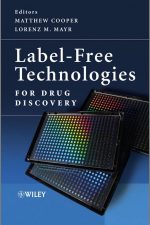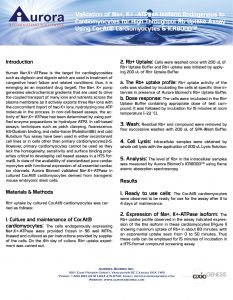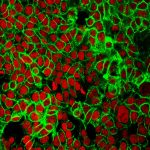应用方向 | 文献名称 | 来源 |
Large Conductance Ca2+– Activated K+ Channels | Functional Analysis of Large Conductance Ca2+ -Activated K + Channels: Ion Flux Studies | Abbott Laboratories |
TRP Channels | Rb+ efflux assay for assessment of non-selective cation channel activities | Wyeth Research |
Potassium Channels | Potassium Channels Methods and Protocols | SPRINGER |
KATP channels | Structure of an open KATP channel reveals tandem PIP2 binding sites mediating the Kir6.2 and SUR1 regulatory interface | Oregon Health & Science University |
hERG1 and Kv1.3 Potassium Channels | High throughput clone screening on overexpressed hERG1 and Kv1.3 potassium channels using ion channel reader (ICR) label free technology | University of Florence |
NKCC1 | Validation of A Robust Label Free Screening Assay for NKCC1 Cotransporter | Aurora 集团 |
hERG | Design synthesis and biological evaluation of low-toxic lappaconitine derivatives as potential analgesics | 西南交通大学 |
Calcium-Activated Chloride Channel | Development and validation of HTS assay for screening the calcium-activated chloride channel modulators in TMEM16A stably expressed CHO cells | 河北医科大学 |
Cation-Chloride Co-transporter | Development of Rubidium Flux Assay & HTS Campaign for Modulators of a Cation-Chloride Co-transporter | Roche |
Na+,K+,-ATPase | Development of an HTS Assay for Na+,K+,-ATPase Using Nonradioactive Rubidium Ion Uptake | 河北医科大学 |
hERG | Evaluation of the Rubidium Efflux Assay for Preclinical Identification of hERG Blockade | Pfizer |
hERG | Analogs of MK-499 are differentially affected by a mutation in the S6 domain of the hERG K+ channel | Merck |
hERG | Characterization of a hERG Screen Using the IonWorks HT: Comparison to a hERG Rubidium Efflux Screen | Schering-Plough Research Institute |
KCNQ2/3 | Validation of Rubidium Ion Efflux Assay for KCNQ/M-Channels Using the Ion Channel Reader 8000 | Wyeth Research |
KCNQ2 | A medium-throughput functional assay of KCNQ2 potassium channels using rubidium efflux | AstraZeneca |
Nav1.7 | Cellular HTS Assays for Pharmacological Characterization of NaV 1.7 Modulators | AstraZeneca |
TRPV1 | Novel Methodology to Identify TRPV1 Antagonists Independent of Capsaicin Activation | AstraZeneca |
Kir6.2 | Characterization of polyhormonal insulin-producing cells derived in vitro from human embryonic stem cells | University of British Columbia |
Na+-K+-Cl– (NKCC1) cotransporter | Blockade of cell volume regulatory protein NKCC1 increases TMZ-induced glioma apoptosis and reduces astrogliosis | University of Pittsburgh Medical Center |
Kv10.1 通道 | Procyanidin B1, a novel and specific inhibitor of Kv10.1 channel, suppresses the evolution of hepatoma | 河北工业大学和河北医科大学 |
离子通道 | A High Throughput Screening Technology-Overcoming Bottlenecks in Ion Channel Drug Targets | Aurora集团 |
hERG | Rb+ Flux through hERG Channels Affects the Potency of Channel Blocking Drugs: Correlation with Data Obtained Using a High-Throughput Rb+ Efflux Assay | The Society for Biomolecular Screening |
离子流与离子通道 | Ion Channel Screening | Aurora集团 |
Rb-ion-efflux-assay | Nonradioactive Rubidium Ion Efflux Assay and Its Applications in Drug Discovery and Development | Discovery Research, Siena, Italy |
离子通道 | High Throughput Assay Technologies for Ion Channel Drug Discovery | Merck Research Laboratories |
离子流 | Ion Flux and Ligand Binding Assays for Analysis of Ion Channels | WILEY-VCH Verlag GmbH & Co |
KCNQ | Zinc pyrithione-mediated activation of voltage-gated KCNQ potassium channels rescues epileptogenic mutants | Johns Hopkins University |
离子通道 | Ion Channels: Targets Of High-Tech Screens | Biocompare |
Kv1.5 | High-throughput analysis of drug binding interactions for the human cardiac channel, Kv1.5 | Merck Research Laboratories |
Kv1.3 | High-Throughput Screening for Kv1.3 Channel Blockers Using an Improved FLIPR-Based Membrane-Potential Assay | Journal of Biomolecular Screening |
TRP通道 | 18 In Vitro and in Vivo Assays for the Discovery of Analgesic Drugs Targeting TRP Channels | Taylor and Francis Group |
离子通道 | 2011 Label Free Tech for DD Chap 8 Nonradioactive Rubidium Efflux Assay Technology for Screening of Ion Channels | University of Siena |
钾离子通道 | 2012 The Antipsychotic Drug Loxapine Is an Opener of the Sodium Activated Potassium Channel Slack | Aurora集团 |
Slide Helix | Decomposition of Slide Helix Contributions to ATP-dependent | University of British Columbia |
p.R1419H-ABCC8 | Alternating hypoglycemia and hyperglycemia in a toddler with a homozygous p.R1419H ABCC8 | University of British Columbia |
NKCC1 | A High-Throughput Screening Assay for NKCC1 Cotransporter Using Nonradioactive Rubidium Flux Technology | Aurora集团 |
KCNQ | Sequence Determinants of subtype-specific actions of KCNQ channel openers | University of Alberta |
Kv7 | Electrophysiological and pharmacological characterization of a novel and potent neuronal Kv7 channel opener SCR2682 for antiepilepsy | 河北医科大学 |
NKCC1 | Role of NKCC1 Activity in Glioma K+ Homeostasis and Cell Growth New Insights With the Bumetanide-Derivative STS66 | University of Pittsburgh |
Na+,K+,-ATPase | Validation of Rb Uptake Assay | Aurora集团 |
离子通道 | Screening Technologies for ion channel drug discovery | Future Science |










